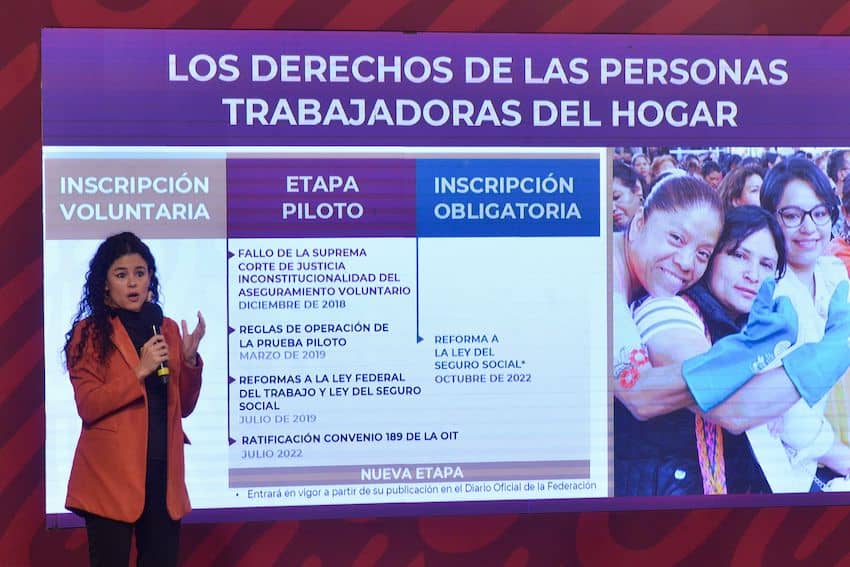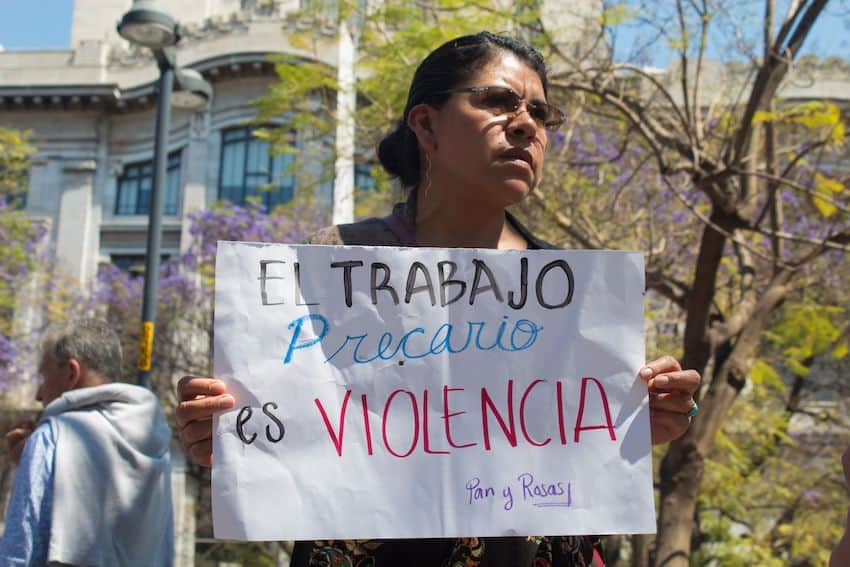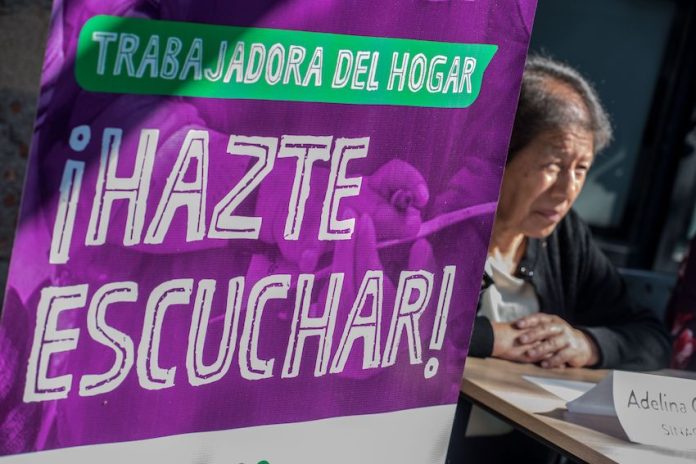Despite high-profile increases in the minimum wage and the number of days of annual vacations for employees, 95% of domestic workers in Mexico still have not been enrolled in social security programs, according to unions.
In 2022, the Supreme Court approved a law that required domestic workers to be enrolled in the Mexican Social Security Institute (IMSS) — the body which provides both healthcare and pensions to Mexican workers.

Healthcare in Mexico is provided by the government, but workers must be officially enrolled and make regular contributions to the scheme via taxes in order to receive assistance. Private healthcare options are unaffordable for the majority of domestic workers.
March 30 is the National Day of Domestic Workers — but in 2023, an estimated 70% of workers are paid below minimum wage, between 239 pesos (US $13.20) and 312 (US $17.23) pesos per day (for workers on the U.S. border).
Mexico has around 2.5 million domestic workers, the vast majority (2.25 million) of them female, and usually working as cleaners and carers, according to statistics from the National Institute of Statistics and Geography (INEGI).
So far, only around 56,000 workers in this field have been successfully enrolled in IMSS, according to the National Center for the Professional Training and Leadership of Domestic Workers. This number represents less than 2.3% of eligible workers.

Many domestic workers also have multiple employers — working in three or four different homes over a week, meaning that it is unclear which employer should shoulder the cost of paying their social security contributions.
This situation is further complicated by the fact that many employers do not want to pay the cost or deal with the bureaucratic requirements of being registered as employers in the IMSS system — and many workers would rather see the extra money that would go to IMSS contributions in their pockets. They are also often paid in cash, without any receipts or official payment documentation to demonstrate that they are employed.
This has created an environment where despite some pay increases, domestic staff are still left in the cold when it comes to social security benefits.
The National Union of Domestic Workers in Mexico (Sinactraho) has been fighting hard for members, trying to enroll and assist where possible, but the informal nature of the sector means that it can be hard to measure the true scale of the problem.
Sinactraho also notes that many workers lack employment protections and contracts, meaning that their precarious situation is made worse by the fact that they can be dismissed at any time, which would eliminate their eligibility for IMSS.
There is a battle for higher pay now looming on the horizon — but before winning new concessions, it will be necessary to make sure that workers can enjoy the benefits of the battles that they have already won.
With reports from SEMmexico and El Economista
